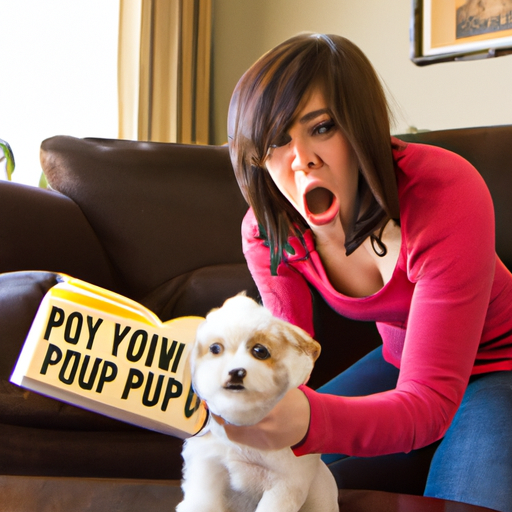A dog’s bark can be a delightful echo of their personality, a simple way to communicate their needs, or, at times, a tiresome sound that disrupts the peace and quiet. If you find yourself in the latter situation, you’re likely seeking methods to curb your puppy’s excessive barking.
Today, you’ll learn techniques to manage your puppy’s barking. Remember, training a puppy takes patience, consistency, and love.
1. Understand Why Your Puppy is Barking
Before you can effectively address your puppy’s barking, you need to understand why they’re barking. Dogs bark for a variety of reasons:
-
Attention seeking: Puppies often bark to get your attention.
-
Boredom: Just like humans, dogs can get bored. If they don’t have enough physical or mental stimulation, they may bark to pass the time.
-
Fear or anxiety: Puppies might bark when they feel scared or anxious.
-
Response to other dogs: Hearing other dogs bark can trigger your puppy to bark too.
2. Remove or Address the Trigger
Once you identify what triggers your puppy’s barking, if possible, remove or address it. Here are some strategies:
-
For boredom: Provide your puppy with plenty of toys, exercises, and mental stimulation.
-
For fear or anxiety: Gradually expose your puppy to what they’re scared of, while ensuring they’re in a safe and controlled environment.
-
For response to other dogs: Try to limit your puppy’s exposure to other barking dogs.
3. Use Positive Reinforcement
Positive reinforcement is a key strategy in addressing excessive barking. Here’s how you can implement it:
- Wait for your puppy to stop barking.
- Once they stop, immediately praise them and offer a treat.
- Repeat this process consistently, gradually increasing the quiet time before rewarding.
4. Teach the “Quiet” Command
Teaching your puppy to understand the “quiet” command can be very beneficial. Follow these steps:
- Allow your puppy to bark, then say “quiet” in a calm and firm voice.
- If they stop barking, immediately reward them with praise and a treat.
- Repeat this process until your puppy learns to associate the command with being quiet.
5. Use Distraction Techniques
Distracting your puppy when they start barking can be an effective technique. This could involve using a toy, starting a game, or initiating a training session.
6. Consult with a Professional
If you’re struggling to manage your puppy’s barking, don’t hesitate to consult with a professional dog trainer or a vet. They can provide personalized advice and strategies to manage your puppy’s behavior.
| Option | Pros | Cons |
|---|---|---|
| Professional Dog Trainer | Personalized advice, one-on-one training | Can be expensive |
| Vet | Can rule out medical issues, professional advice | Might not specialize in behavior training |
7. Practice Patience
Training a puppy requires patience. It’s important to remember that all puppies are different, and what works for one may not work for another. Keep trying different strategies and remember to always use positive reinforcement.
8. Frequently Asked Questions
Q: Is it normal for puppies to bark a lot?
A: Yes, it’s normal for puppies to bark. They’re learning to communicate and navigate their environment. However, excessive barking can be a sign of a problem.
Q: Should I ignore my puppy’s barking?
A: It depends on why your puppy is barking. If they’re barking for attention, ignoring them until they stop can be an effective strategy.
Q: Can I use a bark collar on my puppy?
A: It’s recommended to try positive reinforcement methods before resorting to a bark collar. If you decide to use a collar, it’s best to consult with a professional first.
Remember, your puppy’s barking is a form of communication. It’s important to address the root cause of the barking rather than just trying to stop the noise. With patience, consistency, and love, you can guide your puppy to a quieter way of expressing themselves.



